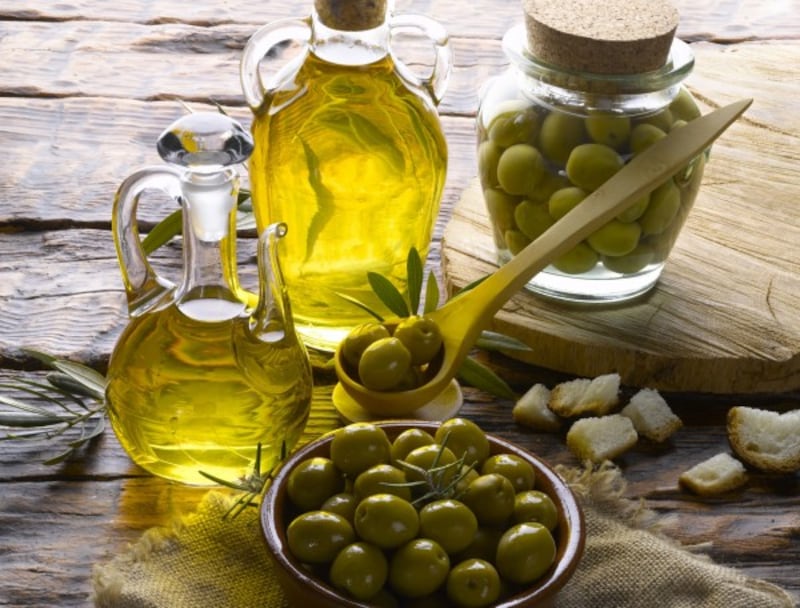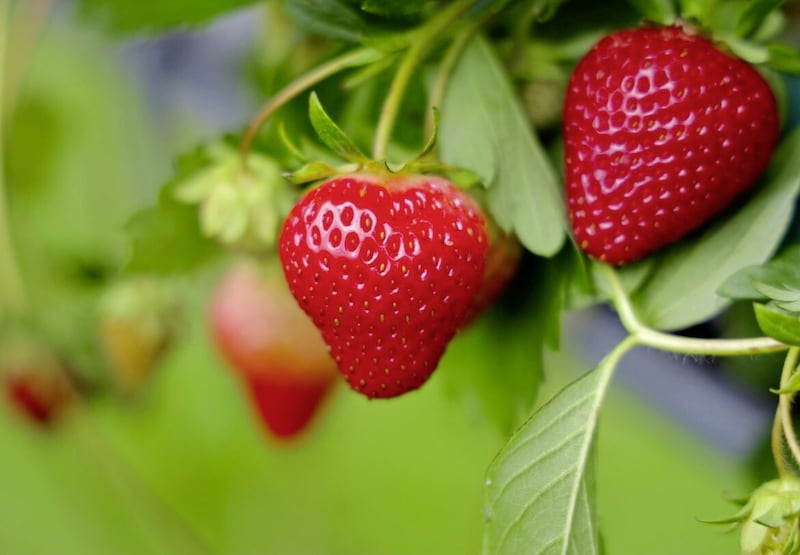PREBIOTICS, probiotics, kefir, kimchi and acidophilus: Until a few years ago, most of us didn’t give our gut microbiome much thought. Now, it is hot news, and every food shopper with even a passing interest in health and nutrition has some sort of probiotic food on their shopping list.
The University of Cork is a world leader in gut microbiome research. In celebration of World Microbiome Week last week, they asked experts for their favourite food to feed the gut microbiome.
How many of these are regulars in your diet?
1. Porridge
One of the nutritional ingredients found in porridge oats is called beta glucans. When fermented by the healthy bacteria in your gut, this polysaccharide works as a prebiotic to help feed good bacteria like bifidobactera. Beta glucans are also found in the cell walls of barley, seaweed and mushrooms.
2. Blueberries
Blueberries are a rich source of polyphenol antioxidants. Our gut microbiome thrives on a diet rich in polyphenols, so it’s a good idea to get berries in your diet every day. Fresh or frozen will have the same effects.

3. Cheese
Some cheese like Gouda, Swiss cheese, Parmesan, Gruyère, edam, mature cheddar and blue cheese like Stilton are a tasty way to get more probiotic bacteria into your diet.

4. Kefir
Kefir is a good source of live bacteria for your gut, but it has the added benefit of being packed with other nutrients that help support their activity and help these bacteria to thrive in your gut.

5. Asparagus
Packed with prebiotics like xylose, inulin and flavonoids that help health-promoting bacteria like lactobacilli and bifidobacteria thrive in your gut microbiome.

6. Cereals
Wholegrain cereals are good for your gut. They are packed with fibre and are a great source of a prebiotic called arabinoxylan. It seems that this prebiotic helps to support healthy populations of bifidobacteria.

7. Onions
Onions are a super food when it comes to gut health. Your microbiome loves a meal with onions, scallions, garlic or leeks. Packed with prebiotics and the base of most delicious dinners. What’s not to love?!

8. Beans
Beans, peas and lentils – the fibre in pulses can change the metabolic profile of our gut microbiome in a healthy way. Try different types – chickpeas, kidney beans, puy lentils or garden peas all have benefits. A good excuse to eat more houmous!

9. Olive oil
Extra virgin olive oil – research shows that getting a daily dose of olive oil in your diet can help support a healthy diversity of bacteria in your gut microbiome. We have the polyphenols to thank for this activity, so choose a good quality extra virgin olive oil and get drizzling.

10. Yoghurt
Live yoghurt – people with a lactose intolerance often find live, natural yoghurt much easier to tolerate because the probiotic bacteria have broken down some of the lactose. Choose a live or probiotic yoghurt and skip low fat yoghurts with artificial sweeteners, flavours and other nonsense for optimum health benefits.

11. Strawberries
Strawberries are in season and super duper for your gut microbiome. A rich source of fibre, vitamins, minerals flavonoids and polyphenols to help support a healthy gut microbiome.

12. Kombucha
Kombucha is a fermented drink made from green and/or black tea, using a SCOBY (symbiotic culture of bacteria and yeast). It contains flavonoids, and other bioactive compounds that have antioxidant, antimicrobial and other benefits for your gut.

13. Green olives
Green olives are fermented in saltwater brine. They are a rich source of lactobacilli bacteria, so a lovely way to get some extra probiotic bacteria into your diet.

14. Broccoli
Broccoli is a rich source of fibre, polyphenols and sulforophane – ingredients that help support a healthy environment in your gut conductive to beneficial bacteria growth and reduced inflammation.

15. Bananas
Bananas contain fibre and phytochemicals to help balance your microbes. When they are eating slightly green, they contains resistant starch, an important source of prebiotic fibre that helps feels and fuel some of the most important bacteria in our gut.

16. Fish
Oily fish – there is some research to suggest that a diet rich in omega 3 fats could have a prebiotic affect. Summertime is the perfect time to put sardines, salmon, mackerel and trout on the menu.

17. Flaxseed
Flaxseed is a great source of fibre, which your gut microbes love. Get into the habit of a spoonful of milled flaxseed a day to keep your soluble fibre, omega 3 and mineral intake topped up.









